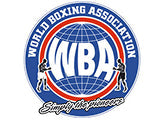
Boxing:World Boxing Association (WBA)
Boxing:World Boxing Association (WBA)
The World Boxing Association (WBA) stands as the oldest and one of the most influential sanctioning bodies in professional boxing. With roots stretching back to the 1920s, the WBA has been at the epicenter of the sport’s global expansion, helping define championship standards and producing generations of legendary fighters who have shaped the sweet science.
Origins: From the NBA to the WBA
The WBA began its journey in 1921 as the National Boxing Association (NBA) in the United States. Created to bring order and uniformity to boxing championships, the NBA quickly became one of the sport’s leading authorities.
In 1962, recognizing the growing international appeal of boxing, the organization rebranded as the World Boxing Association, expanding its jurisdiction and influence beyond American borders. This move marked the beginning of a more globalized era in professional boxing.
Structure and Titles
The WBA sanctions professional fights across 17 weight divisions, and historically, it has allowed for both “regular” and “super” champions in the same division. While this dual-champion system has been met with mixed reviews, the WBA has taken recent steps toward title consolidation to restore clarity and prestige.
The organization also governs regional titles (such as WBA Intercontinental or WBA Gold), helping fighters climb the ranks toward world title contention.
Legendary WBA Champions
The WBA belt has adorned the waists of many of boxing’s all-time greats:
- Muhammad Ali – Won the WBA heavyweight title by defeating Sonny Liston in 1964.
- Roberto Durán – Held the WBA lightweight crown during his ferocious reign.
- Sugar Ray Leonard – Captured the WBA welterweight title en route to superstardom.
- Mike Tyson – Unified the WBA heavyweight belt during his explosive rise.
- Manny Pacquiao – Won the WBA “super” welterweight title late in his career, becoming a champion in four decades.
These champions not only defined eras—they carried the WBA name into history books.
Global Impact and Modern Evolution
With headquarters in Panama, the WBA operates as a truly international organization, sanctioning fights in Asia, Africa, Europe, and the Americas. It remains heavily involved in youth development, humanitarian efforts, and amateur boxing advocacy, working to grow the sport from the grassroots to the elite level.
In recent years, the WBA has undertaken reforms to streamline titles, improve rankings transparency, and strengthen fighter safety protocols—further solidifying its relevance in today’s evolving boxing landscape.
Legacy of the WBA
More than just a sanctioning body, the WBA is a symbol of boxing tradition. As the first global authority in the sport, its influence is woven into the legacy of boxing itself. Through decades of triumphs, controversies, and comebacks, the WBA has remained a pillar of professional pugilism—respected, historic, and enduring.
Author: Paragon Elite Fight Group – Research and Development Team
Published: 28/05/2025
Website: www.paragonelitefight.com
Contact: info@paragonelitefight.com
At Paragon Elite Fight, we don’t just train—we evolve. The Research and Development Team behind this article represents a collective of combat athletes, sports scientists, marketing strategists, and fight historians who are dedicated to bridging the ancient roots of martial arts with the future of combat performance.
We are born from Hellas, forged in the legacy of Pankration, and driven by a relentless pursuit of excellence, innovation, and authenticity. Every word we write is inspired by real warriors, real battles, and the enduring fire of those who choose the hard road—the worthy road.
Whether in the cage, on the streets, or in life, we create for those who train harder, think deeper, and never stop fighting.
Join us at www.paragonelitefight.com to explore more articles, elite gear, and resources forged for fighters who demand more from themselves—and their tools.
